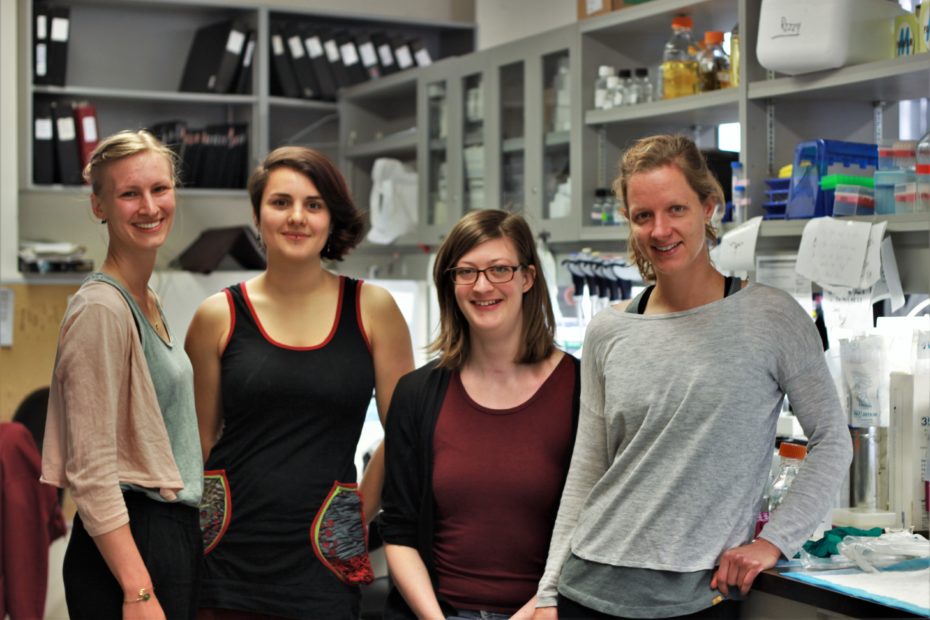
When the Sustainability Projects Fund (SPF) was established in 2009, it was an experiment.
The idea was simple: Promote a culture of sustainability across McGill by providing seed funding for grassroots sustainability projects that address everything from energy savings to social justice. (Each student would pay 50 cents per credit, which the administration would match dollar for dollar.) Members of the McGill community, including students, staff and faculty, would be welcome to apply for funding for their projects big and small.
Ten years, and $7 million in funding, later, it’s safe to say the experiment has been a huge success.
On October 10, the SPF will celebrate its 10th anniversary as the largest fund of its kind in Canada.
In the ten days leading up to October 10, the McGill Reporter is highlighting 10 of the more than 200 projects that have been supported by the SPF.
Today’s project: the MNI’s Green Labs Initiative
Research labs contribute greatly to scientific progress. So, it’s only logical that those labs should eliminate environmental and financial waste as much as possible.
That’s the goal of the Montreal Neurological Institute’s Green Labs Initiative (GLI), launched last year with financing from the SPF.
Research facilities like the MNI are dependent on single-use plastics, hazardous chemicals and energy-intensive equipment, and the GLI aims at improving its sustainability by recycling materials, creating online resources and organizing events to change the culture within the MNI.
Raising awareness
The project will be directed by ‘Green Lab Ambassadors.’ Funds from the SPF allowed them to buy recycling boxes, related equipment, campaign and events materials and to launch a website that went live last week. Its website contains the full program, events and resources available, to which more will be added over time.
The GLI’s team members noted two areas in particular that pose a challenge in terms of reducing the environmental impact of its research: a lack of awareness of proper disposal procedures of lab waste, alternative lab practices and mitigating resources available; and an infrastructure that has not yet incorporated environmental practices.
The goal is “to implement infrastructural and cultural change within the MNI in order to make our research more sustainable by recycling lab materials, reducing water/energy/ use and uniting the MNI community to explore green alternatives.”
Concentrating on larger labs first
Scientific research provides major benefits, but those benefits should not be outweighed by heavy environmental costs, the proposal noted. Organizers of the initiative said “while many may try to reduce their (ecological) impact at home, it is difficult to apply the same diligence in a laboratory setting.”
Team members will concentrate mostly on the larger labs at first, collecting data on waste diversion and water/energy reduction to raise funds as well as enthusiasm for the initiative, before extending it to the whole institution. Additional funds will go to buying green lab products. The project also plans to create “an artist residency to create an installation from our discarded plastics.”
#spf10
